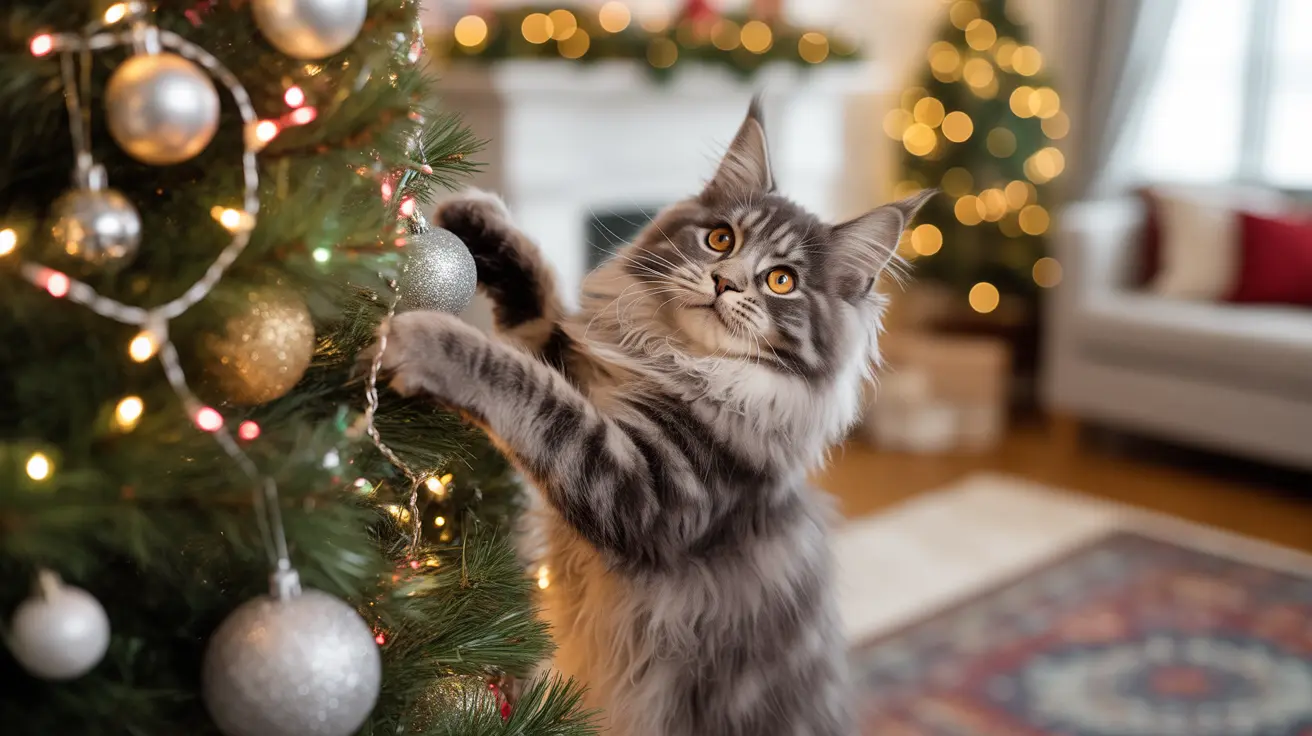The holiday season often brings dreams of adorable puppies and kittens under the Christmas tree. While the idea of Christmas pets can be heartwarming, it's crucial to understand both the joys and responsibilities that come with giving animals as holiday gifts. This comprehensive guide will help you navigate the important decisions and safety considerations surrounding pets during the festive season.
Understanding the Impact of Holiday Pet Adoption
The decision to bring a new pet home during Christmas requires careful consideration. While shelters often see increased adoption rates during the holidays, they also experience a surge in returns months later when the initial excitement wears off. This pattern highlights the importance of viewing pet adoption as a long-term commitment rather than a seasonal gesture.
Essential Safety Considerations for Christmas Pets
Holiday Decoration Hazards
Christmas decorations pose numerous risks to both new and existing pets. Christmas trees can tip over if climbed by curious animals, while treated tree water may contain harmful chemicals. Tinsel and ribbons are particularly dangerous for cats, potentially causing life-threatening intestinal blockages requiring emergency surgery.
Glass ornaments, electrical cords, and holiday plants like poinsettias and mistletoe present additional hazards. Keep these decorations out of reach or opt for pet-safe alternatives to prevent accidents and emergencies.
Protecting Pets from Holiday Foods
Many traditional holiday treats are toxic to pets. Chocolate, alcohol, grapes, and foods containing xylitol can cause severe illness or death. Keep all edible gifts securely stored and inform guests about the importance of not sharing their food with pets.
Making Responsible Decisions About Christmas Pets
When to Consider Pet Adoption
If you're seriously considering adding a pet to your family during the holidays, timing is crucial. Consider waiting until after the holiday chaos subsides to introduce your new companion to their forever home. This allows for a calmer adjustment period and proper preparation.
Alternative Gift Options
Instead of surprising someone with a live animal, consider giving pet-related gifts that allow for thoughtful preparation:
- Adoption gift certificates
- Pet supplies and equipment
- Books about pet care
- Financial sponsorship for future adoption fees
Creating a Pet-Safe Holiday Environment
Preparing your home for a holiday pet requires careful attention to safety details:
- Secure Christmas trees to prevent tipping
- Use pet gates to block access to dangerous areas
- Choose pet-safe decorations
- Create quiet spaces where pets can retreat from holiday excitement
- Keep emergency veterinary contact information readily available
Frequently Asked Questions
Is it safe to give a pet as a Christmas gift, and what are the risks involved?
While it's possible to safely give a pet as a Christmas gift, it's generally recommended to involve the recipient in the selection process. The main risks include unprepared recipients, improper matching of pet personalities to households, and potential returns to shelters if the commitment wasn't well-considered.
What are the most common holiday hazards for dogs and cats in the home?
Common hazards include Christmas tree water, tinsel, electrical cords, toxic holiday plants, and dangerous foods like chocolate and xylitol. Ornaments can also pose choking risks, while holiday entertaining may create stressful situations for pets.
How can I pet-proof my home for Christmas to keep my new pet safe?
Secure your Christmas tree, keep toxic plants out of reach, cover electrical cords, use shatterproof ornaments, and create pet-free zones for dangerous decorations. Also, maintain a quiet space where your pet can retreat when overwhelmed.
Are pets adopted at Christmas more likely to be returned to shelters after the holidays?
Statistics show that holiday pet adoptions can lead to increased returns in the following months. However, well-planned adoptions where all family members are involved in the decision have similar success rates to adoptions at other times of the year.
What should I do if my pet ingests Christmas decorations or toxic holiday foods?
Contact your veterinarian or emergency animal hospital immediately. Keep the ASPCA Animal Poison Control number (888-426-4435) handy. If possible, bring the packaging or a sample of what was ingested to help with treatment.
Conclusion
While the idea of Christmas pets can be magical, successful holiday pet adoption requires careful planning, preparation, and commitment. By understanding the responsibilities and potential risks, you can make informed decisions that lead to lasting, joyful relationships with your new furry family members.






